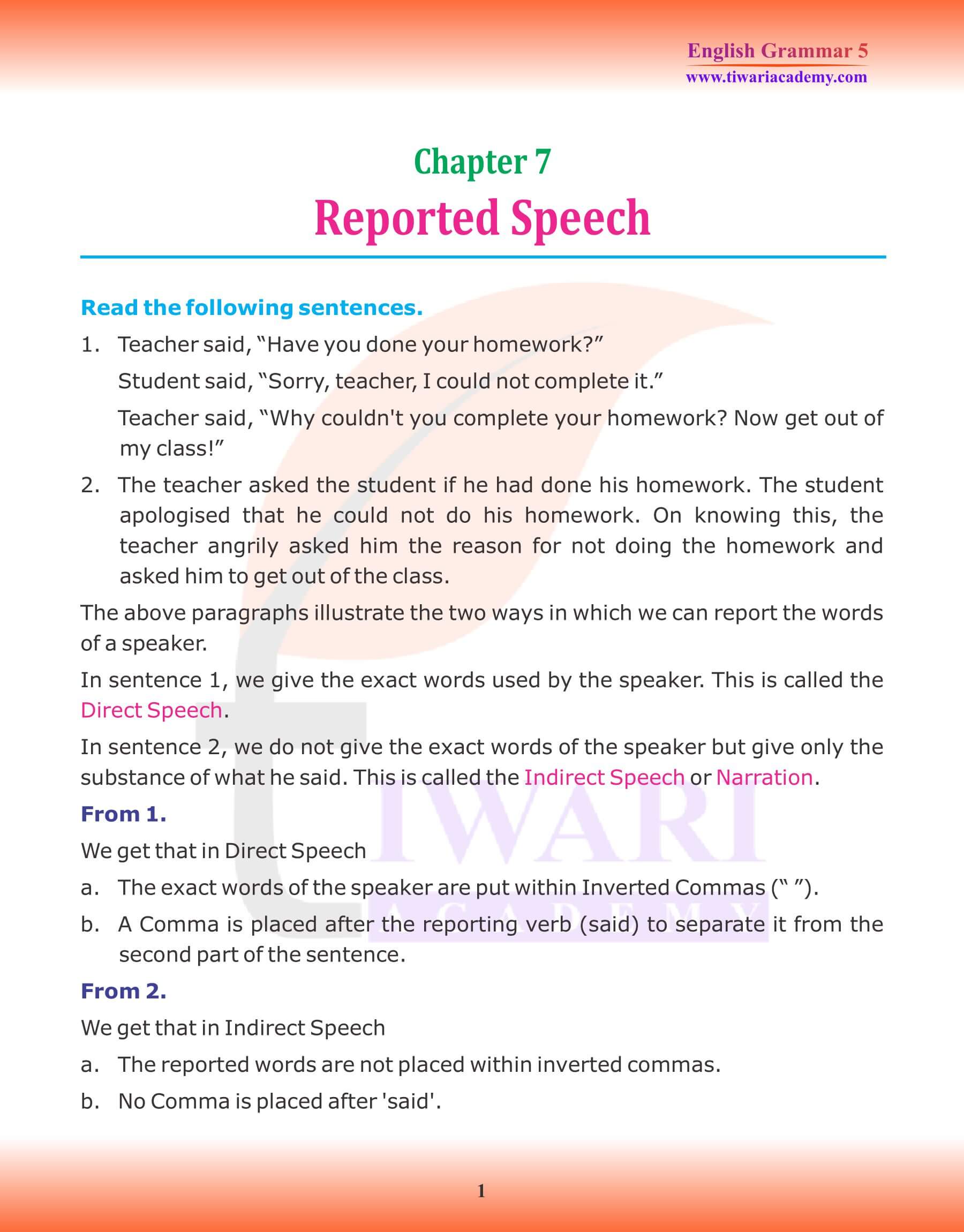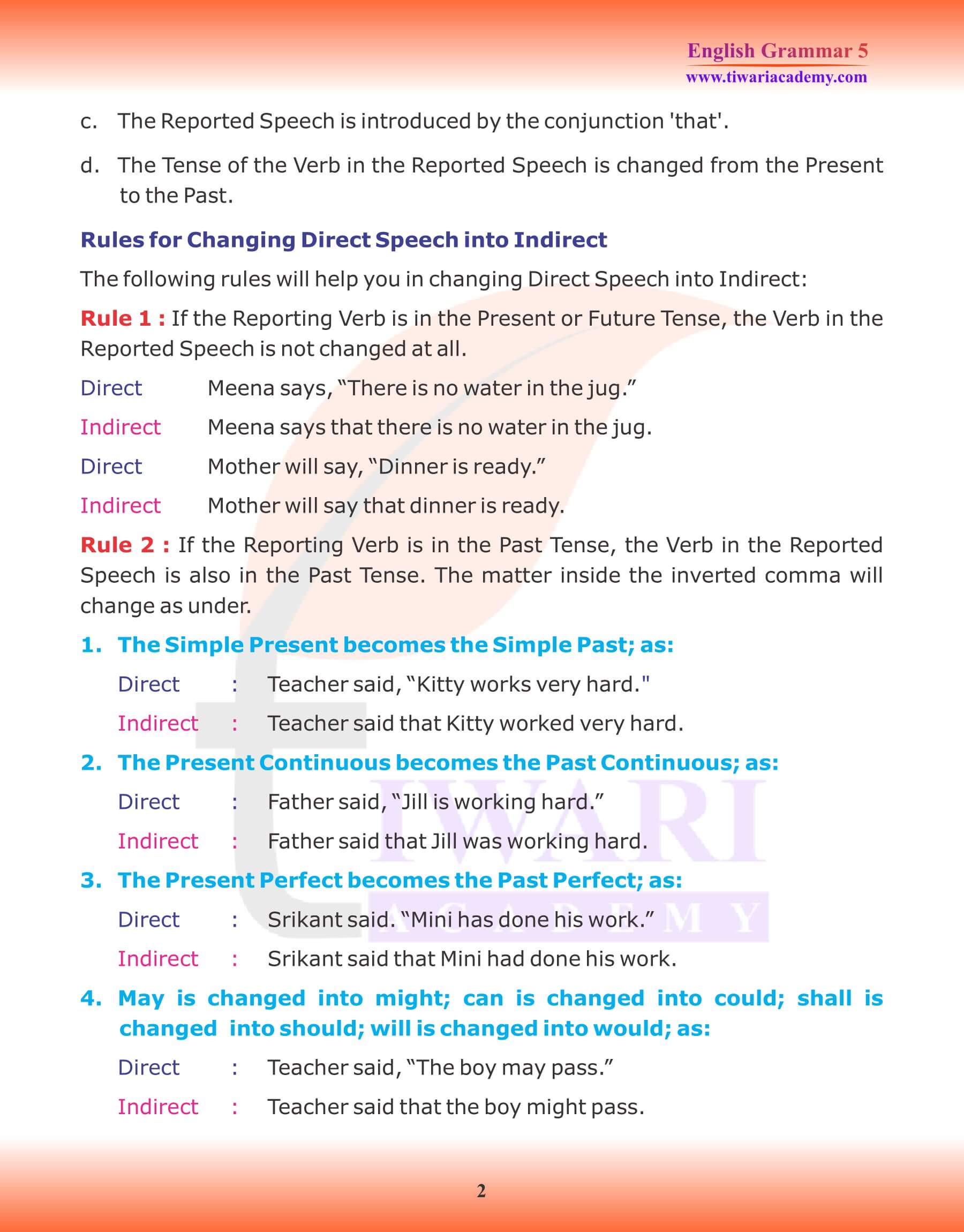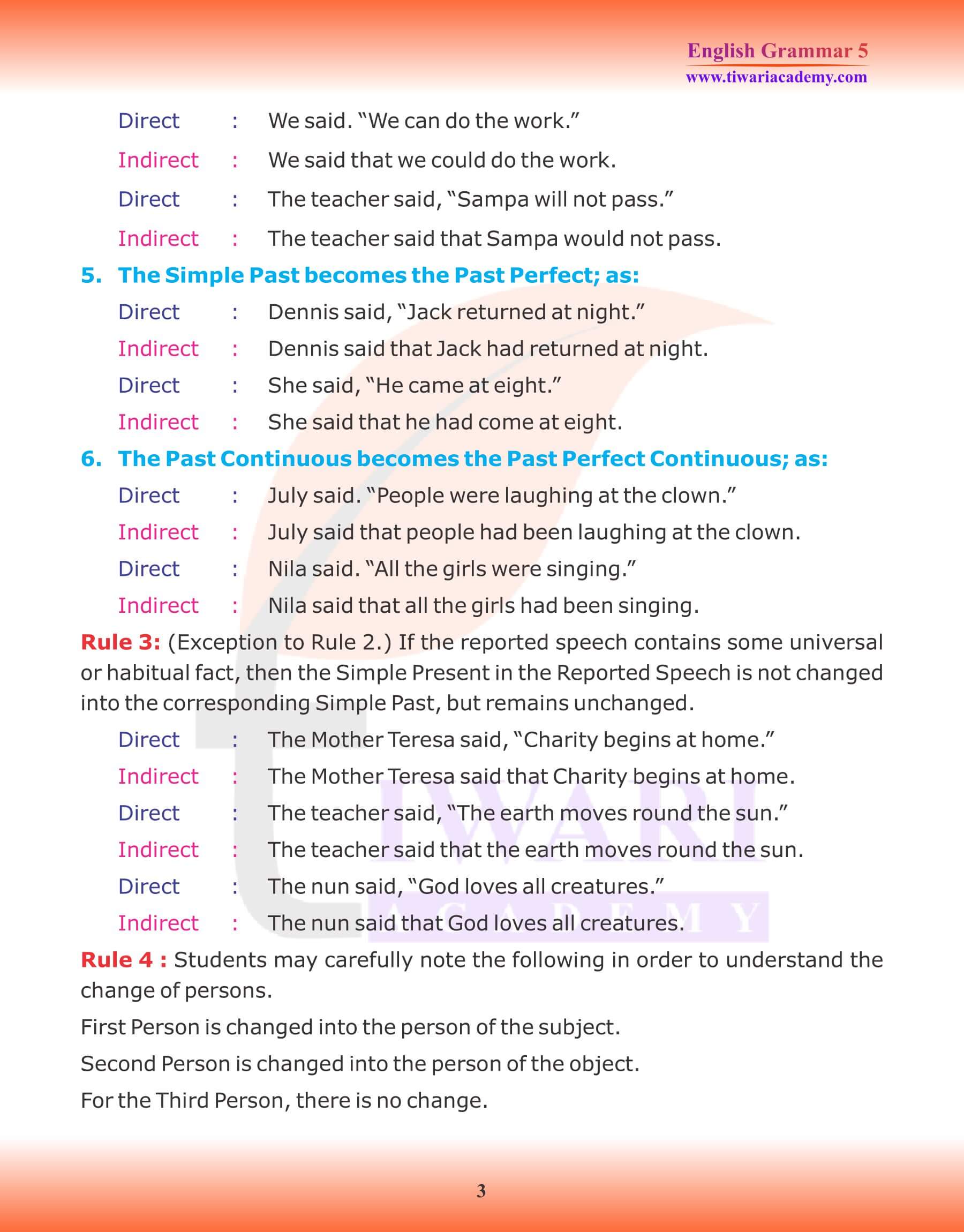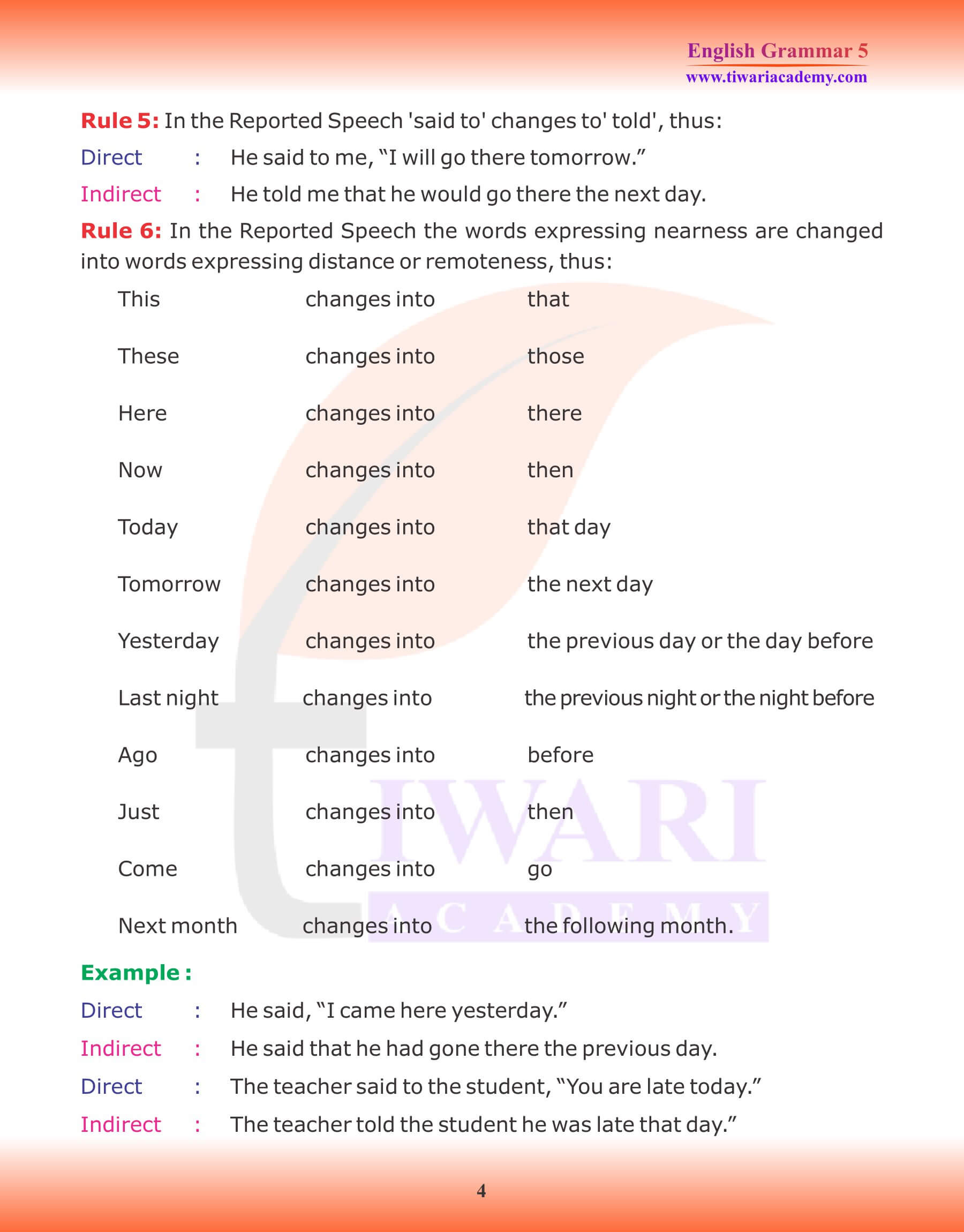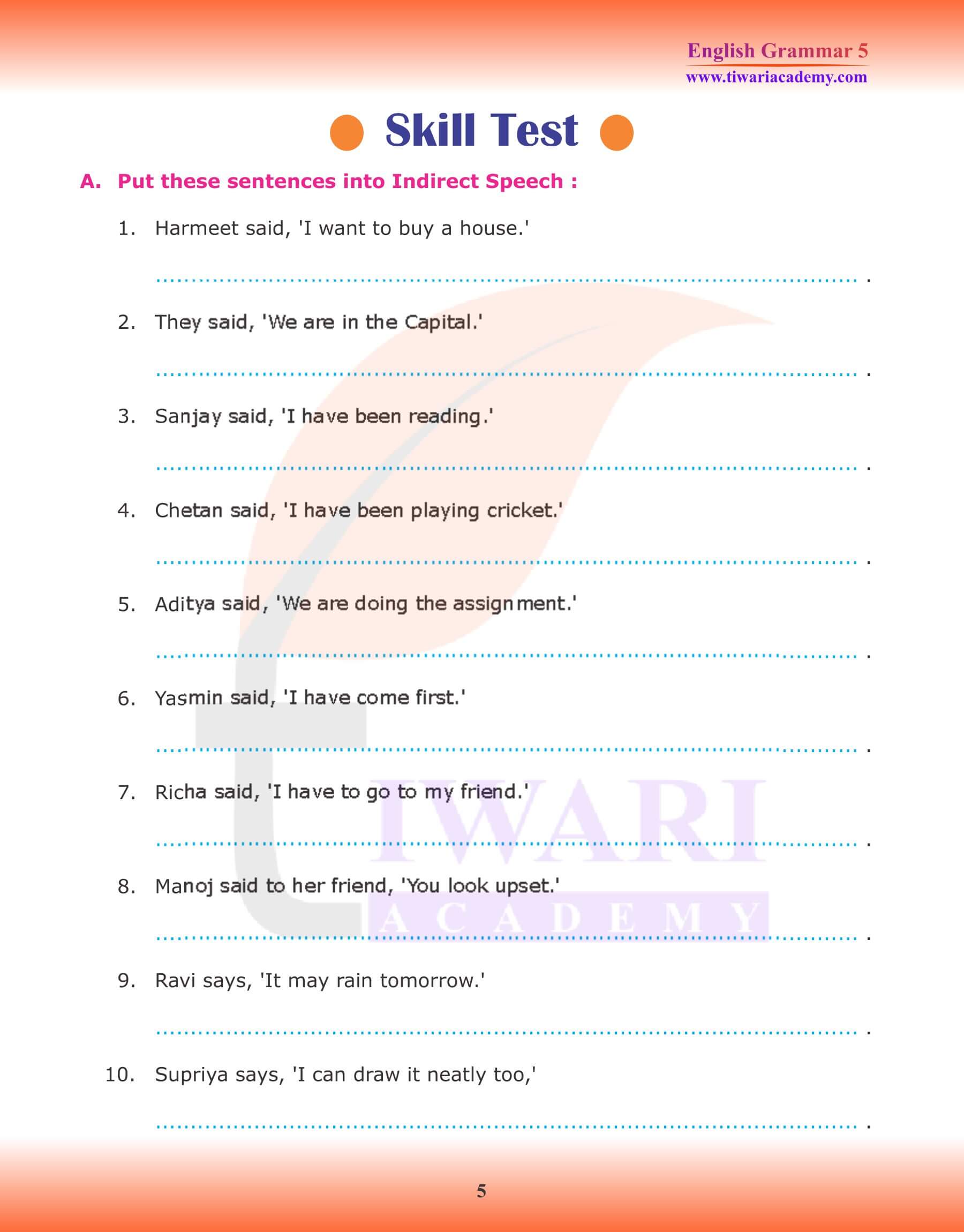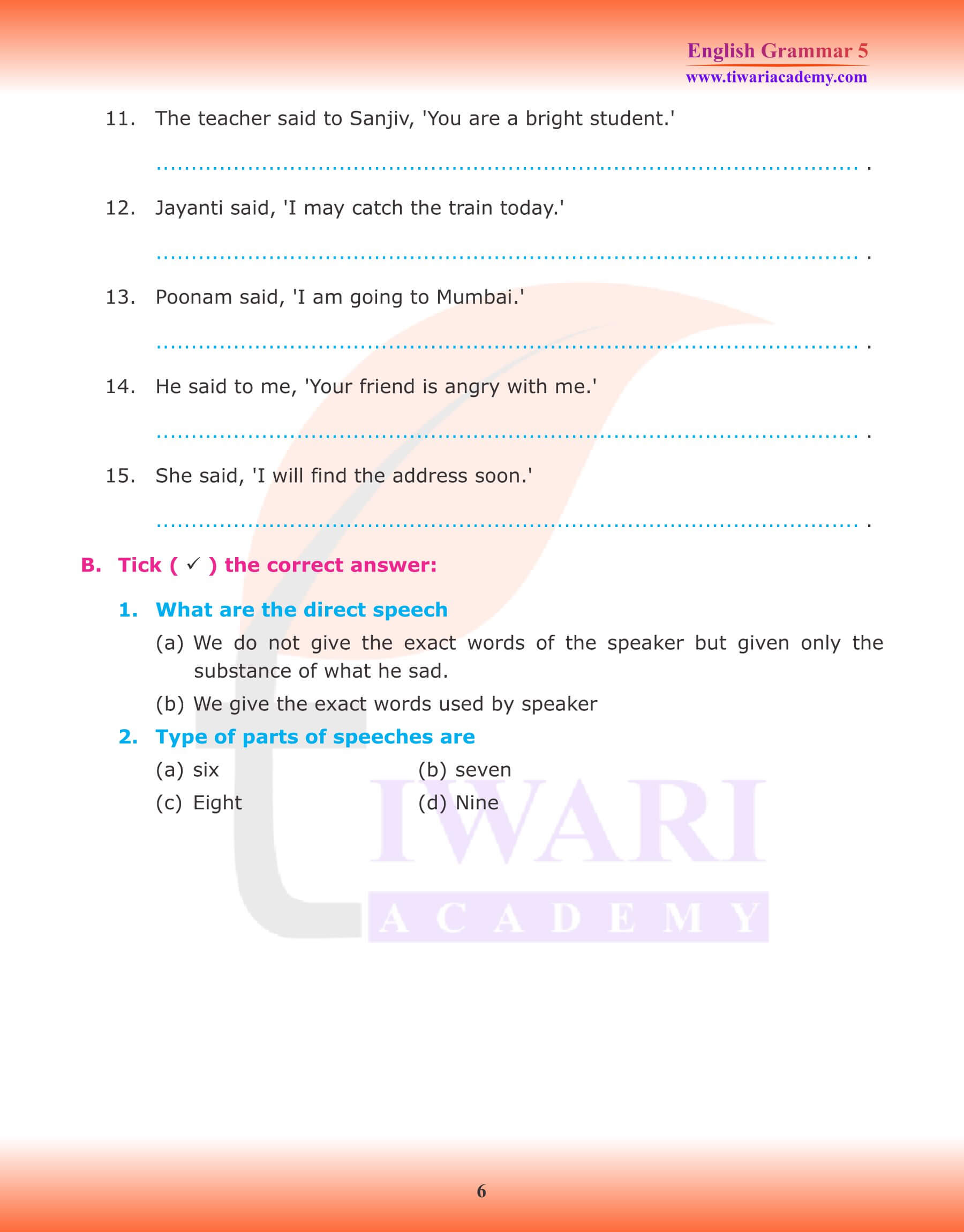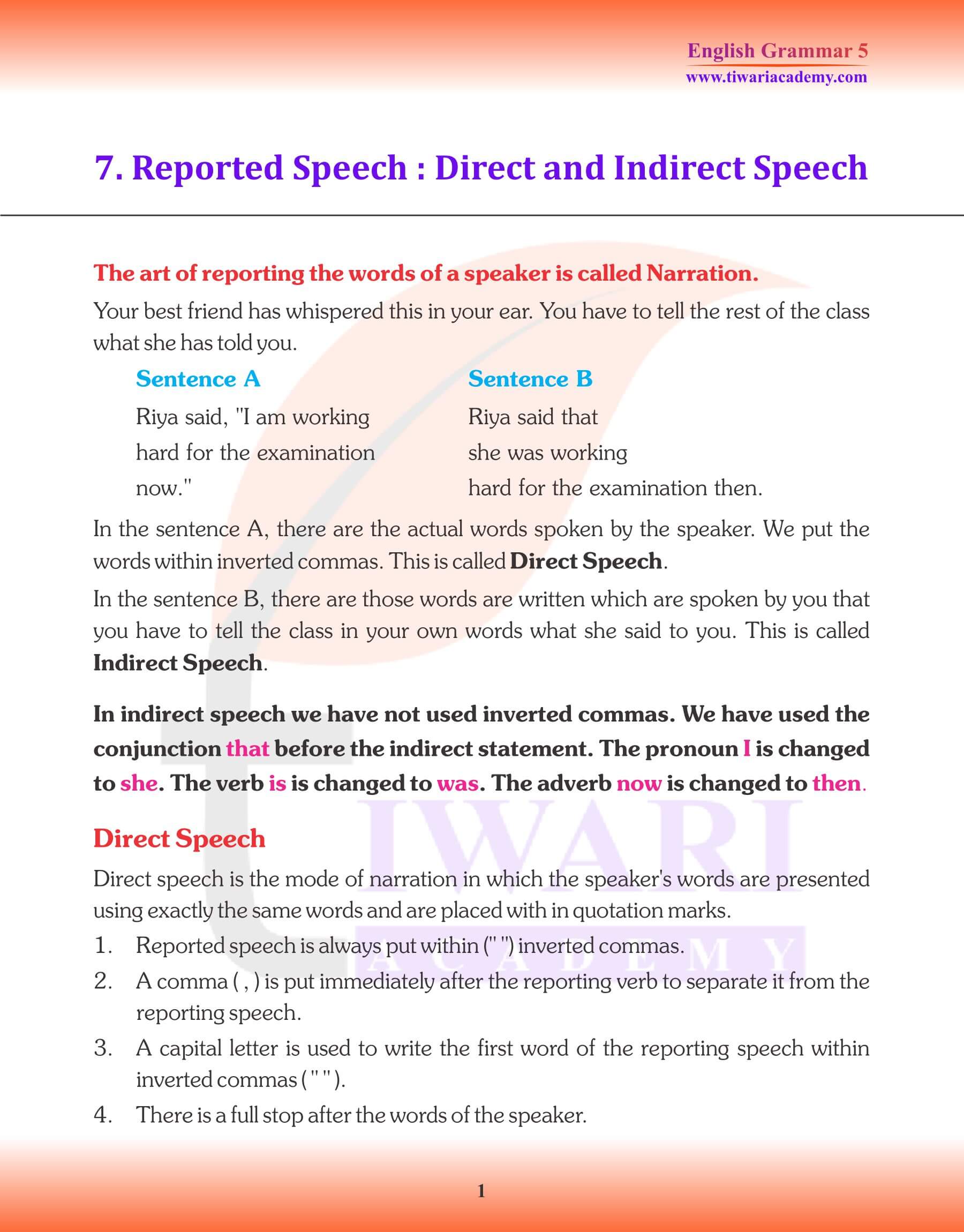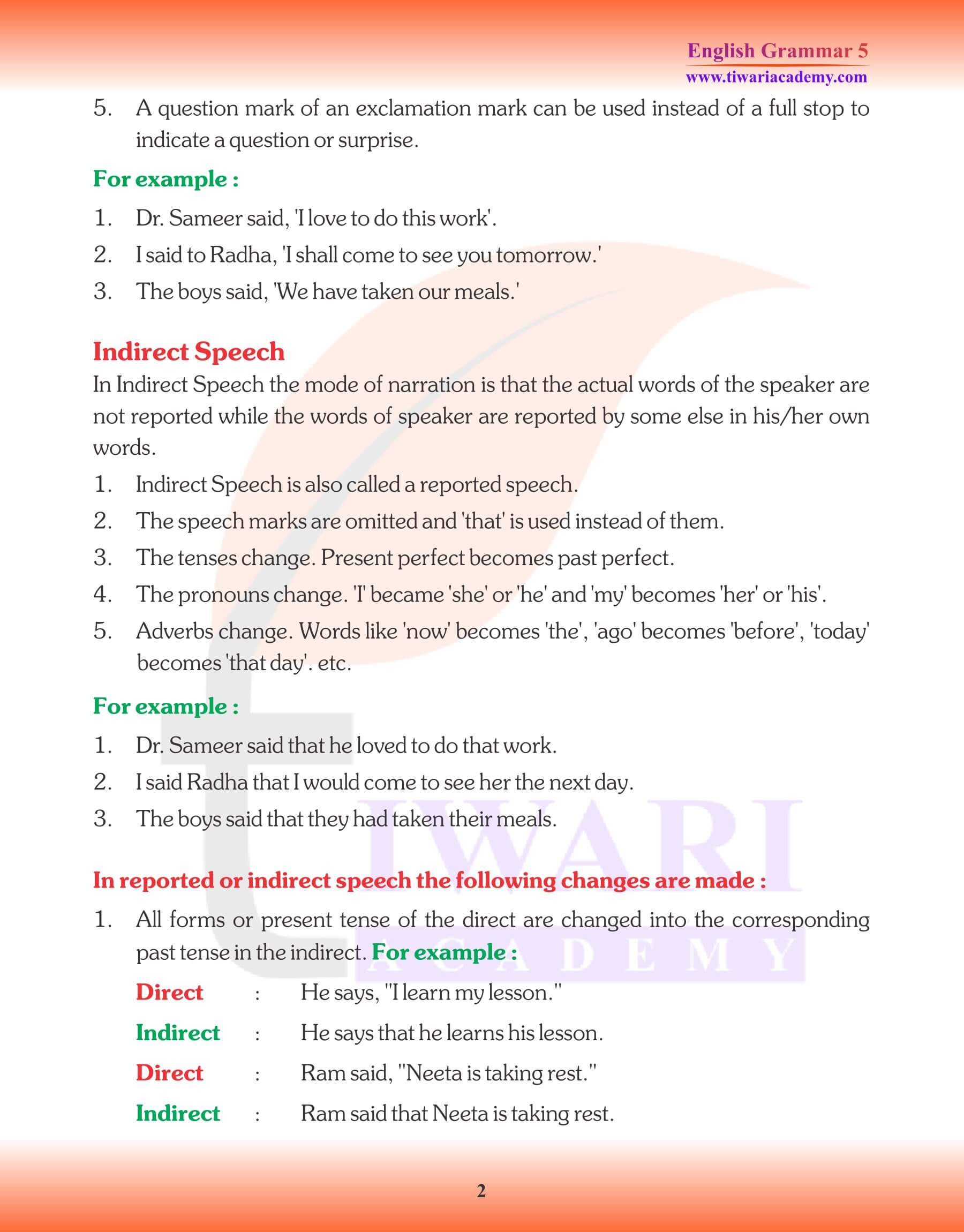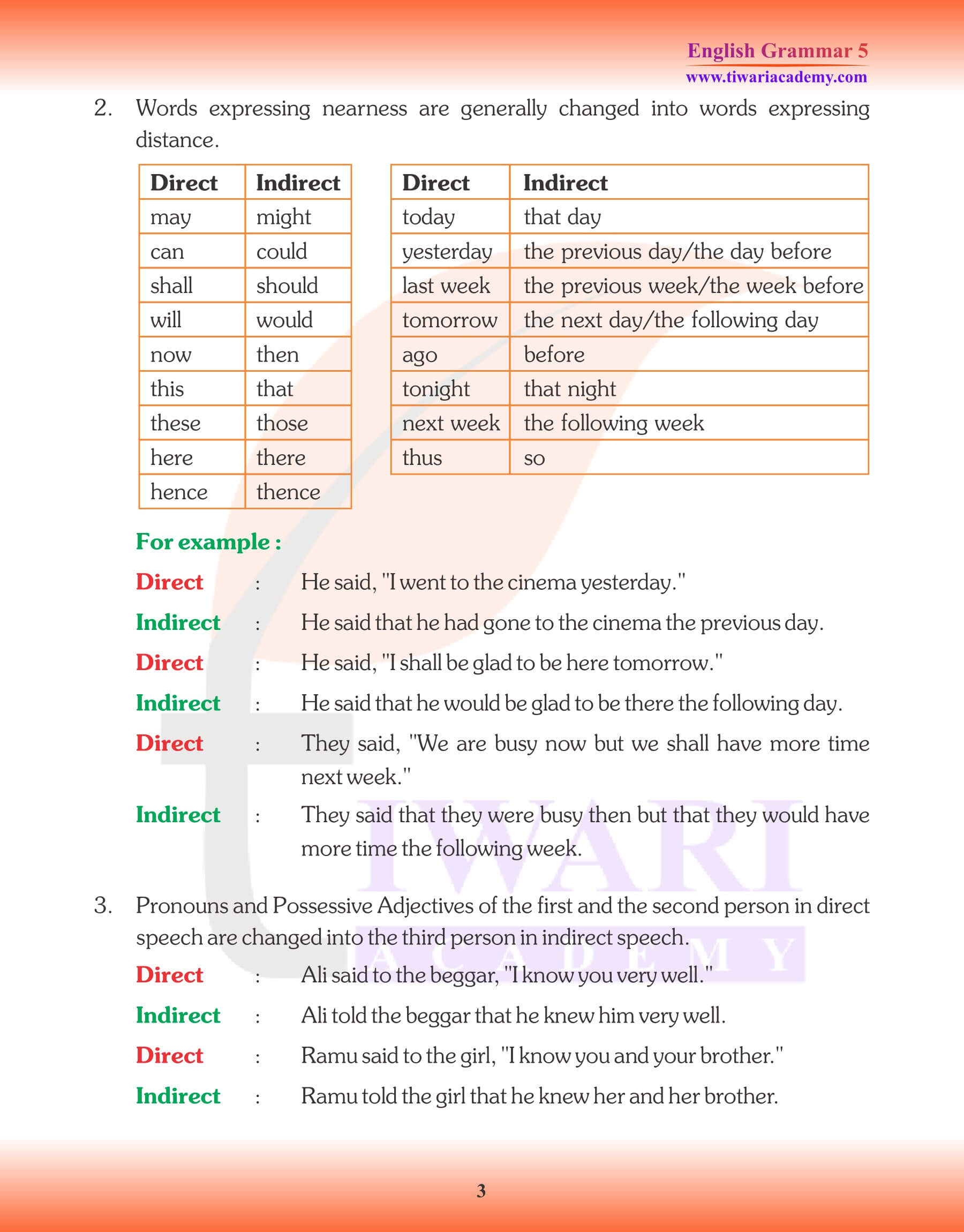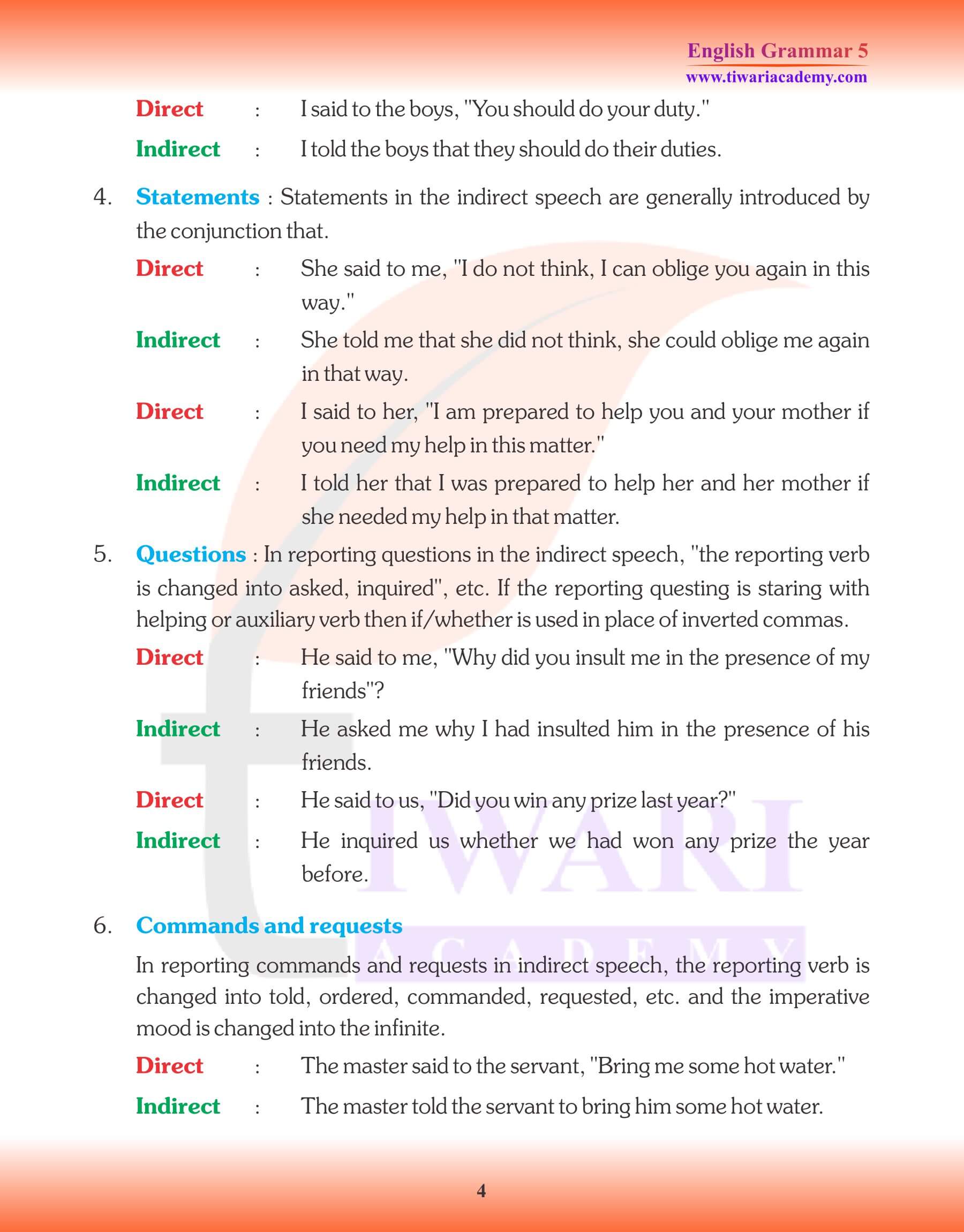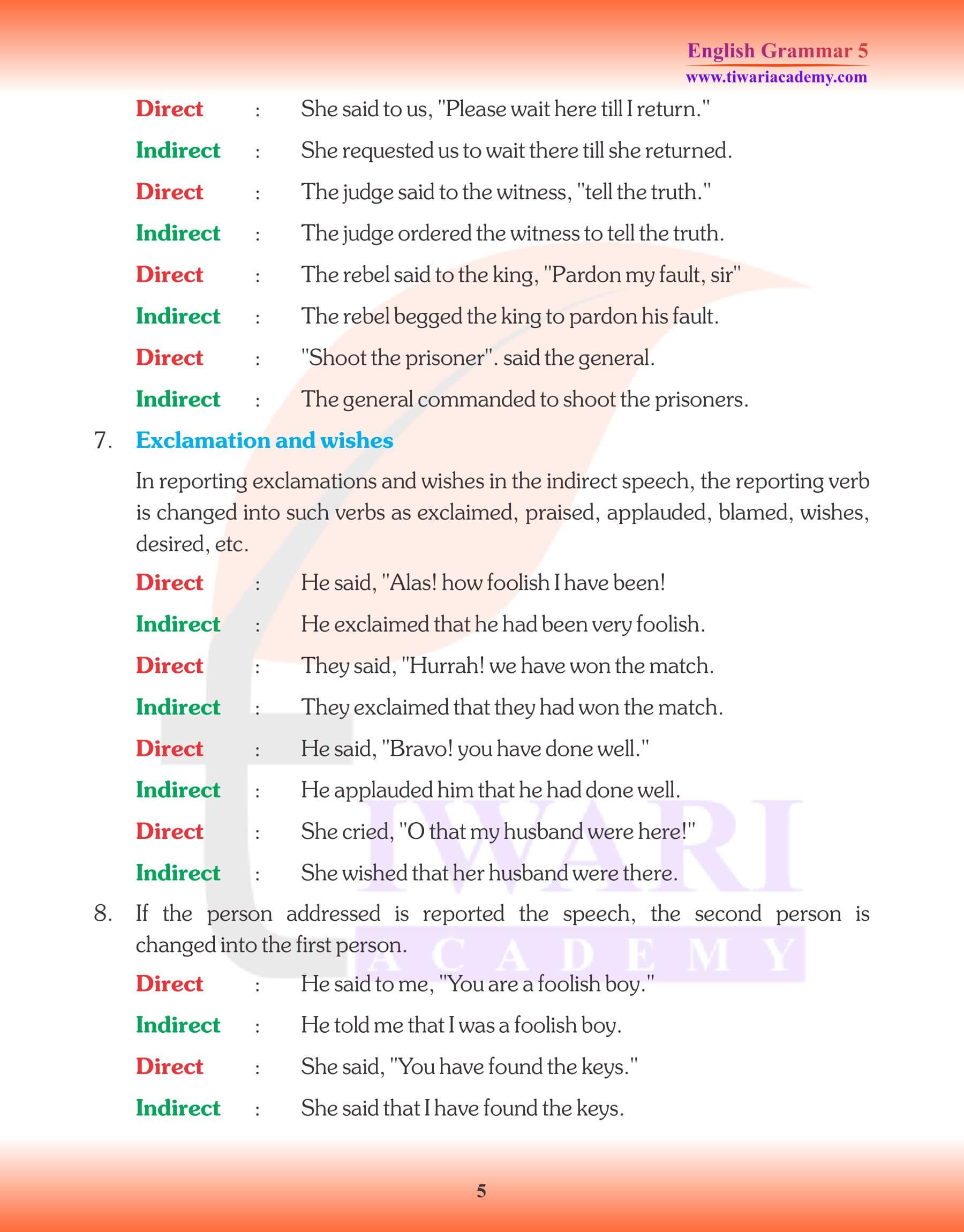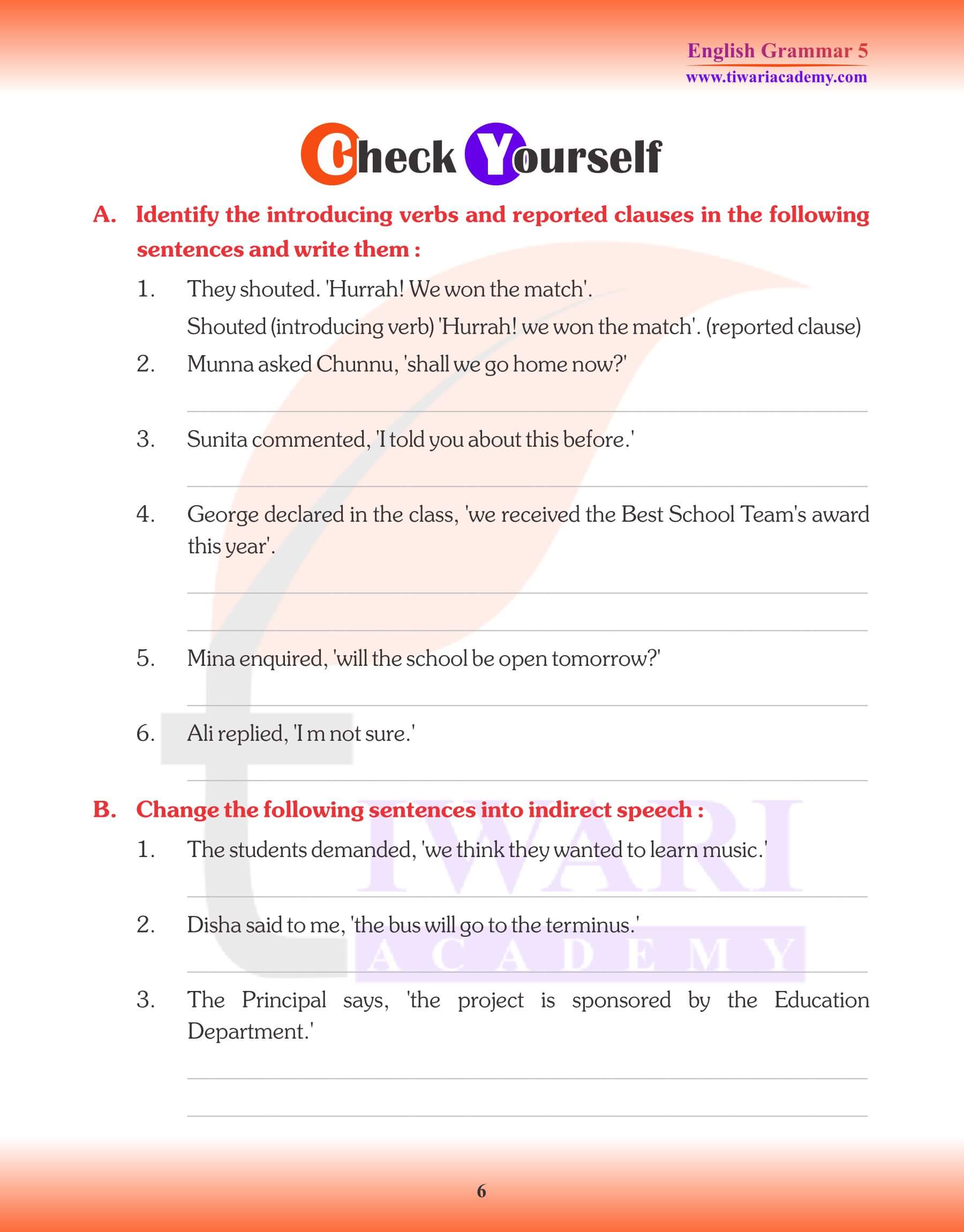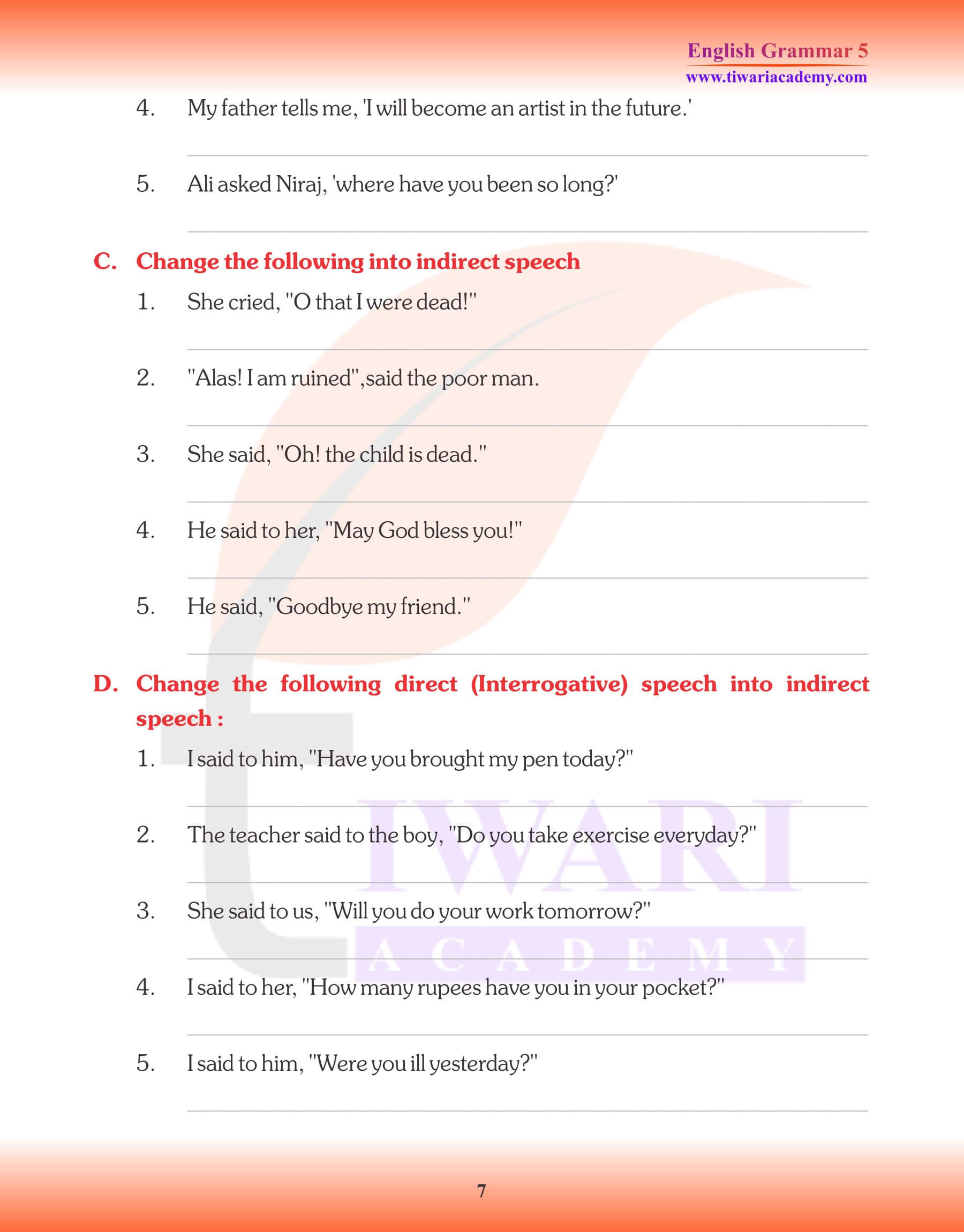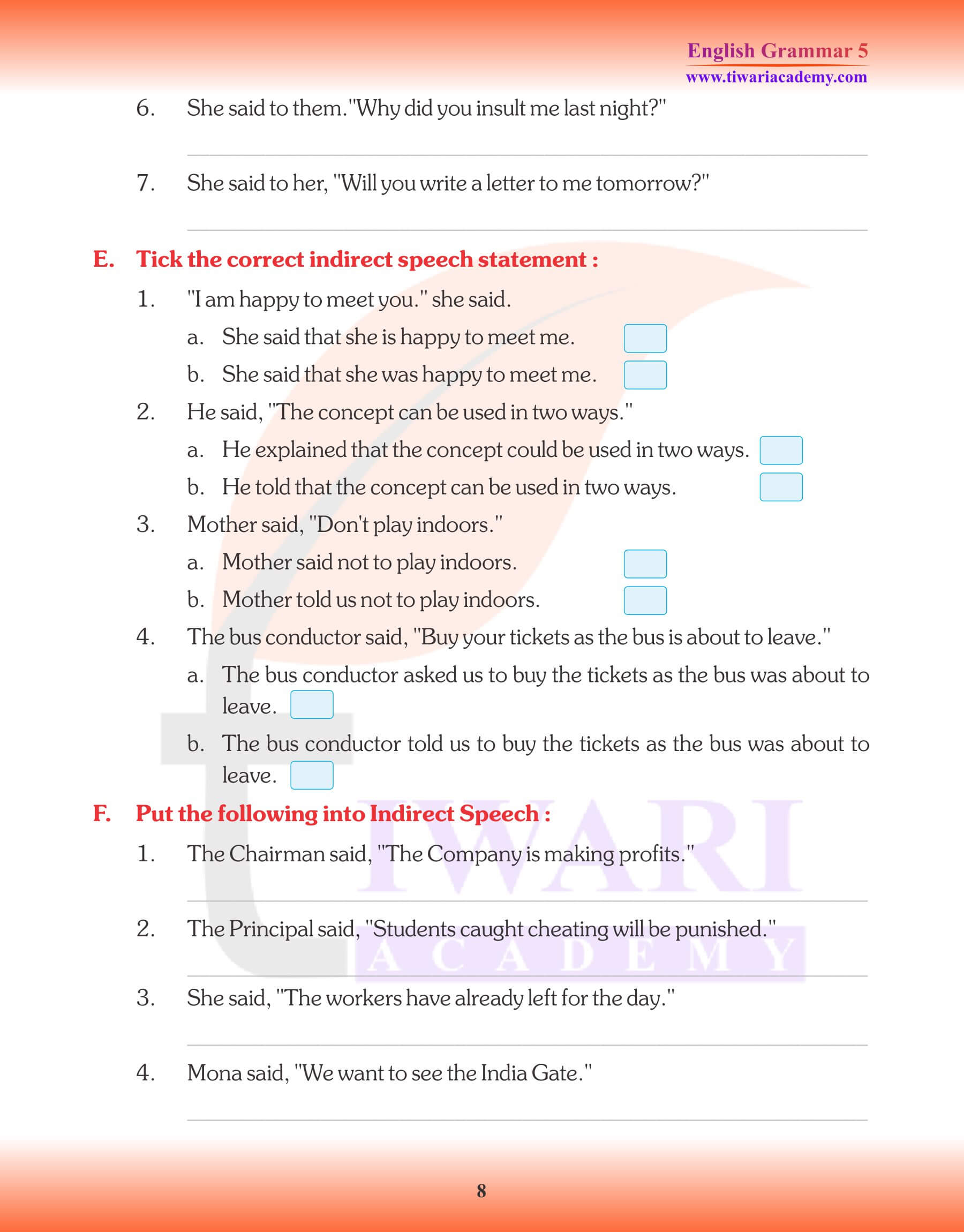NCERT Solutions for Class 5 English Grammar Chapter 7 Reported Speech (Direct and Indirect Speech) updated for session 2024-25. State boards and CBSE students can take the benefits of these contents clearing their doubts. Lots of illustrations are given for practice the concepts.
Class 5 English Grammar Chapter 7 Reported Speech (Direct and Indirect)
Class 5 English Grammar Chapter 7 Reported Speech
| Class: 5 | English Grammar |
| Chapter: 7 | Reported Speech (Direct and Indirect) |
Direct and Indirect Speech
The following paragraphs illustrate the two ways in which we can report the words of a speaker.
- 1. Teacher said, “Have you done your homework?”
Student said, “Sorry, teacher, I could not complete it.”
Teacher said, “Why couldn’t you complete your homework? Now get out of my class!” - 2. The teacher asked the student if he had done his homework.
The student apologised that he could not do his homework. On knowing this, the teacher angrily asked him the reason for not doing the homework and asked him to get out of the class.
In 1, we give the exact words used by the speaker. This is called the Direct Speech. In 2, we do not give the exact words of the speaker but give only the substance of what he said. This is called the Indirect Speech or Narration.
Rules for Changing Direct Speech into Indirect
The following rules will help you in changing Direct Speech into Indirect:
Rule 1:
If the Reporting Verb is in the Present or Future Tense, the Verb in the Reported Speech is not changed at all.
Direct: Meena says, “There is no water in the jug.”
Indirect: Meena says that there is no water in the jug.
Rule 2:
If the Reporting Verb is in the Past Tense, the Verb in the Reported Speech is also in the Past Tense. The matter inside the inverted comma will change as under.
1. The Simple Present becomes the Simple Past; as:
Direct: Teacher said, “Kitty works very hard.”
Indirect: Teacher said that Kitty worked very hard.
Rule 3:
(Exception to Rule 2.) If the reported speech contains some universal or habitual fact, then the Simple Present in the Reported Speech is not changed into the corresponding Simple Past, but remains unchanged.
Direct: The Mother Teresa said, “Charity begins at home.”
Indirect: The Mother Teresa said that Charity begins at home.
Rule 4:
Students may carefully note the following in order to understand the change of persons.
First Person is changed into the person of the subject.
Second Person is changed into the person of the object.
For the Third Person, there is no change.
Rule 5:
In the Reported Speech ‘said to’ changes to “told”, thus:
Direct: He said to me, “I will go there tomorrow.”
Indirect: He told me that he would go there the next day.
Rule 6:
In the Reported Speech the words expressing nearness are changed into words expressing distance or remoteness, thus:
ex.: This- changes into- that
Words expressing Nearness or Distance
| words expressing nearness | words expressing distance or remoteness |
|---|---|
| This | that |
| These | those |
| Here | there |
| Now | then |
| Today | that day |
| Tomorrow | the next day |
Words expressing Nearness or Distance
| words expressing nearness | words expressing distance or remoteness |
|---|---|
| Yesterday | the previous day or the day before |
| Last night | the previous night or the night before |
| Ago | before |
| Just | then |
| Come | go |
| Next month | the following month. |
What is reported speech and its type in Chapter 7 Class 5 English Grammar?
Reported speech is the way we can express our thoughts. There are two type of reported speeches:
(i). Direct Speech
(ii). Indirect speech
What is the main difference between direct and indirect speeches in Class 5 Grammar Chapter 7?
Direct speech: in the direct speech sentences we give the exact words used by the speaker. This is called the Direct Speech.
Ex.: Meena says, “There is no water in the jug.”
Indirect speech: in the indirect speech sentences we do not give the exact words of the speaker but give only the substance of what he said. This is called the Indirect Speech or Narration.
Ex.: Meena says that there is no water in the jug.
What is the indirect form of Present Perfect in 5th Grammar Chapter 7?
The Present Perfect becomes the Past Perfect; when sentence changes from direct speech to indirect speech.
Ex.:
Direct: Srikant said. “Mini has done his work.”
Indirect: Srikant said that Mini had done his work.
In what condition Simple Present in the Reported Speech is not changed into the corresponding Simple Past in Class 5 Grammar?
If the reported speech contains some universal or habitual fact, then the Simple Present in the Reported Speech is not changed into the corresponding Simple Past, but remains unchanged.
Ex.: Direct: The Mother Teresa said, “Charity begins at home.”
Indirect: The Mother Teresa said that Charity begins at home.
